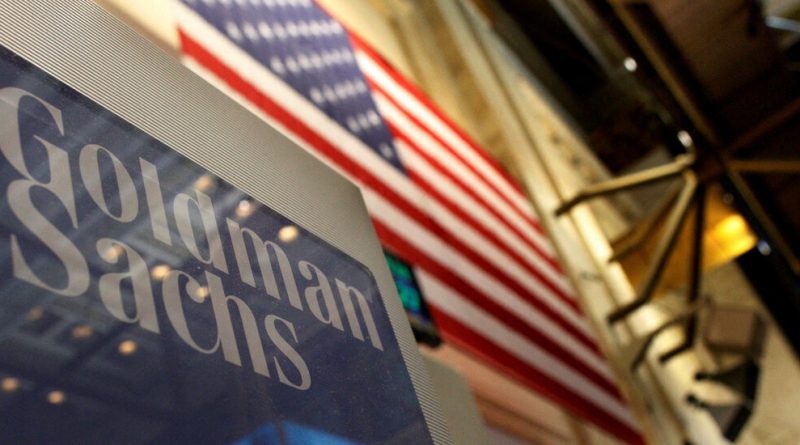Goldman Sachs Falters Amid Strong Earnings From Big Banks
Big banks show their strength
Bank of America and BNY Mellon reported on Tuesday that deposits fell less than analysts had expected last quarter, pushing their shares up in premarket trading as investors see more evidence that the country’s biggest lenders grew stronger after Silicon Valley Bank’s demise last month.
A major outlier: Goldman Sachs, which reported revenues that came in below Wall Street’s forecasts, booked a $470 million loss on efforts to sell loans connected with its struggling Marcus consumer banking unit. Its stock fell nearly 4 percent lower in premarket.
The outlook is far cloudier for smaller banks. State Street, M&T Bank and Charles Schwab on Monday reported nearly $60 billion in deposit outflows last quarter. State Street’s shares fell more than 9 percent on Monday, its worst single-day performance in three years. Schwab and State Street both halted stock buyback plans, citing market uncertainty.
Banks are under pressure to raise interest rates to stem the deposit exodus. About $12 billion in deposits left State Street last quarter as customers sought higher rates elsewhere, according to Gerard Cassidy, a banking analyst at RBC Capital Markets.
Per the Federal Deposit Insurance Corporation, the average savings deposit account at a U.S. bank pays out 0.37 percent in interest. That looks miserly, especially after the Fed raised up the federal funds rate to nearly 5 percent over the past year: The gap between the Fed’s prime lending rate and the average deposit rate has reached a multidecade high.
Look for rivals to exploit that gap. Apple and Goldman Sachs on Monday announced a savings account that pays 4.15 percent in interest. Goldman’s Marcus offers a savings account with a 3.9 percent interest rate.
Despite banking uncertainty, stocks broadly continue to rise. The S&P 500 is up 7.5 percent since the collapse of Silicon Valley Bank. But concerns are growing about a recession in the second half of the year, a weak earnings season and the turmoil surrounding lenders prompting a credit crunch.
Mike Wilson, Morgan Stanley’s chief investment officer, warned investors on Tuesday about consumers having drawn more than $1 trillion worth of deposits out of American banks, suggesting that “a credit crunch has started.”
HERE’S WHAT’S HAPPENING
The defamation trial of Fox News is expected to begin on Tuesday. Sources told The New York Times that Dominion Voting Systems and Fox are unlikely to reach a settlement despite a one-day delay in proceedings as they discussed a potential truce. The companies argued over the size of the potential damages that Fox faces, with Dominion sticking with its claim that it should get over $1.6 billion.
House Republicans will meet to hash out next steps in the debt-ceiling fight. G.O.P. members are set to gather on Tuesday to discuss Speaker Kevin McCarthy’s proposal, made at the New York Stock Exchange, for a one-year increase in the nation’s borrowing limit in exchange for steep government spending cuts. McCarthy has a tough task: He has a slim majority to pass his plan, and the Democratic-led Senate won’t entertain his offer.
Consulting giants delay start dates for some business-school recruits. According to The Wall Street Journal, Bain & Company has offered M.B.A. recruits up to $40,000 if they start next year and take on other projects like working at a nonprofit group or becoming a yoga instructor until then; as of Monday, McKinsey & Company hadn’t given many recruits start dates. (It now has since done so, the company said.) The moves come as both consulting firms and their clients embark on job cuts.
Hollywood writers authorize a strike. Unions representing thousands of movie and television writers overwhelmingly supported a walkout when their contract with major studios expires on May 1. If a strike happens, it would be the first in 15 years; the unions and studios are at an impasse on economic issues, including the use of so-called minirooms to produce shows.
Manchester United’s stock slumps on a report that a sale may be off. Shares in the English soccer club fell over 10 percent on Monday after ESPN said that the team’s co-chairmen, Joel and Avram Glazer, believed they could secure a sizable minority investment and keep control. Several multibillion-pound bids to buy all of United have been made, but the Glazers reportedly believe the club’s valuation could surge over the next decade.
Why China’s economic data isn’t all good
China on Tuesday published solid economic data for the first full quarter since Beijing lifted strict Covid-19 restrictions. The numbers will give hope that the world’s second-biggest economy has turned a corner. But the recovery was uneven and bolstered by a low base effect after last year’s rolling lockdowns, and big questions persist about the country’s management of the economy and private enterprise.
G.D.P. expanded 4.5 percent in the first quarter year-on-year, beating analysts’ forecasts and up from 2.9 percent in the last three months of 2022. The figures are close to the government’s full-year growth target of 5 percent; analysts expect the recovery to accelerate over the coming months as pent-up demand is unleashed.
Big drivers included retail sales, which rose 5.8 percent year-on-year, and were up 10.6 percent in March alone; outbound trade, which climbed 8.4 percent; and government spending on infrastructure, which jumped 8.8 percent.
But big worries persist. The property sector, which has accounted for about a quarter of gross domestic product over the past decade, is still a drag, with the construction of new homes, offices and stores falling 5.8 percent year on year.
Companies are trying to diversify supply chains away from China. Michael Dell told The Financial Times that customers were demanding that his computer company source products from outside China to avoid any supply disruptions. JPMorgan Chase forecasts that Apple will make a quarter of its products outside China by 2025, up from less than 5 percent.
And private sector confidence remains low. One leading indicator: Youth unemployment hit 19.6 percent in March, its second-highest on record. Companies are holding back from hiring because of economic uncertainty and Beijing’s role in the private sector, said Yu Jie, a China expert at Chatham House, a think tank. “Restoring confidence will take time,” she told DealBook.
Elon Musk opens up about “TruthGPT”
In a long-awaited interview with the Fox News host Tucker Carlson that aired on Monday, Elon Musk discussed a wide range of topics, including a claim — made without evidence — that the U.S. government had “full access” to Twitter users’ direct messages and an admission that the social network’s valuation had plunged since he bought it.
Musk also opened up about another preoccupation: creating an alternative artificial intelligence start-up to OpenAI, the parent company of ChatGPT that he had once backed. But the billionaire said he had different goals than tech giants racing to introduce A.I.-infused products.
Musk wants a “maximum truth-seeking A.I.,” which he calls TruthGPT. (Last month, he filed to start a new company, X.AI, in Nevada.) Musk offered no concrete details about the proposed start-up, but said it would focus on creating software that “tries to understand the nature of the universe.”
That approach contrasts with what he called the “two heavyweights” of the A.I. race, Microsoft and Google, which he said were too focused on profits and not enough on safety.
Musk has been fixated on the dangers of A.I. for some time. Last month, he and others wrote an open letter calling for a pause in the development of artificial intelligence, citing fears that developers were creating giant experiments that they could not “understand, predict or reliably control.”
In other Musk news:
Musk suggested that Twitter’s steep valuation drop was attributed to buying the company just before a cyclical drop in digital advertising spending, not to any actions he had taken. He’s scheduled to be interviewed onstage on Tuesday at the Possible digital marketing conference.
Twitter labeled the account of the Canadian Broadcasting Corporation as “69% Government-funded Media” after the broadcaster said that less than 70 percent of its funding came from the government.
“You can visit ‘pity city,’ but you can’t live there.”
— Andi Owen, the C.E.O. of the office furniture giant MillerKnoll. In a video from a March town hall event that has circulated widely online, Owen criticized employees for asking about bonuses as the company struggled with declining sales.
The S.E.C.’s chief in the hot seat
The S.E.C. chairman, Gary Gensler, will face questions from the House Financial Services Committee on Tuesday for the first time since Republicans took over leadership of the chamber. Based on recent statements from its chairman, Representative Patrick McHenry, Republican of North Carolina, the exchanges could get explosive.
McHenry has accused Gensler of stonewalling his investigation into FTX, the crypto exchange that collapsed in November. He also threatened the use of “compulsory process” if the agency didn’t hand over documents about its charges in December against Sam Bankman-Fried, the FTX founder.
Also high on the agenda are S.E.C. proposals to amend the definition of an “exchange” to potentially include digital asset trading platforms, which would introduce more agency oversight over operations and add more rigorous custody requirements for investment advisers looking to expand into crypto assets.
Climate disclosure rules could get heated, too. Last year, the S.E.C. proposed adding requirements for companies to publish details about climate risk management and emissions data, which for some large companies would include “Scope 3” emissions that stem downstream to suppliers.
McHenry has created a Republican working group focused on vetting environmental, social and governance policies. Its leader, Bill Huizenga of Michigan, has called the proposed climate disclosure rules “disastrous” and a “prime example” of regulatory overreach.
Proposed market structure changes are also on the agenda. The meme stock trading frenzy of 2021 shined a spotlight on the practice of payment for order flow in which market makers like Citadel pay brokerage firms like Robinhood and Schwab for their flow of trades.
The S.E.C. has proposed changes to the practice that aim to give investors more transparency about the execution price for a particular trade. Wall Street has come out against the moves.
THE SPEED READ
Deals
The commodities giant Glencore has reportedly pitched some 120 shareholders of Teck Resources on rejecting the Canadian miner’s plan to break itself up and instead support its $22.5 billion takeover bid of the company. (Reuters)
Lululemon is said to be considering a sale of Mirror, the home fitness start-up it bought for $500 million in 2020. (Bloomberg)
Policy
Gov. Ron DeSantis of Florida announced new legislation meant to restore state oversight of Disney’s theme parks. (NYT)
Fund-raising committees for Nikki Haley, the former South Carolina governor running for the Republican presidential nomination, have drawn support from donors like the oil magnate Harold Hamm and the investment banker Aryeh Bourkoff. (CNBC)
Best of the rest
How Weyerhaeuser, the timber giant, has recast itself as a big seller of carbon offsets despite felling as many trees as ever. (WSJ)
Several thousand engaged couples have dropped Bed Bath & Beyond from their wedding registries over fears that the troubled retailer won’t survive. (Bloomberg)
“Is $63 Million Too Much for Logan Roy’s House?” (Vulture)
We’d like your feedback! Please email thoughts and suggestions to [email protected].
Source: Read Full Article




